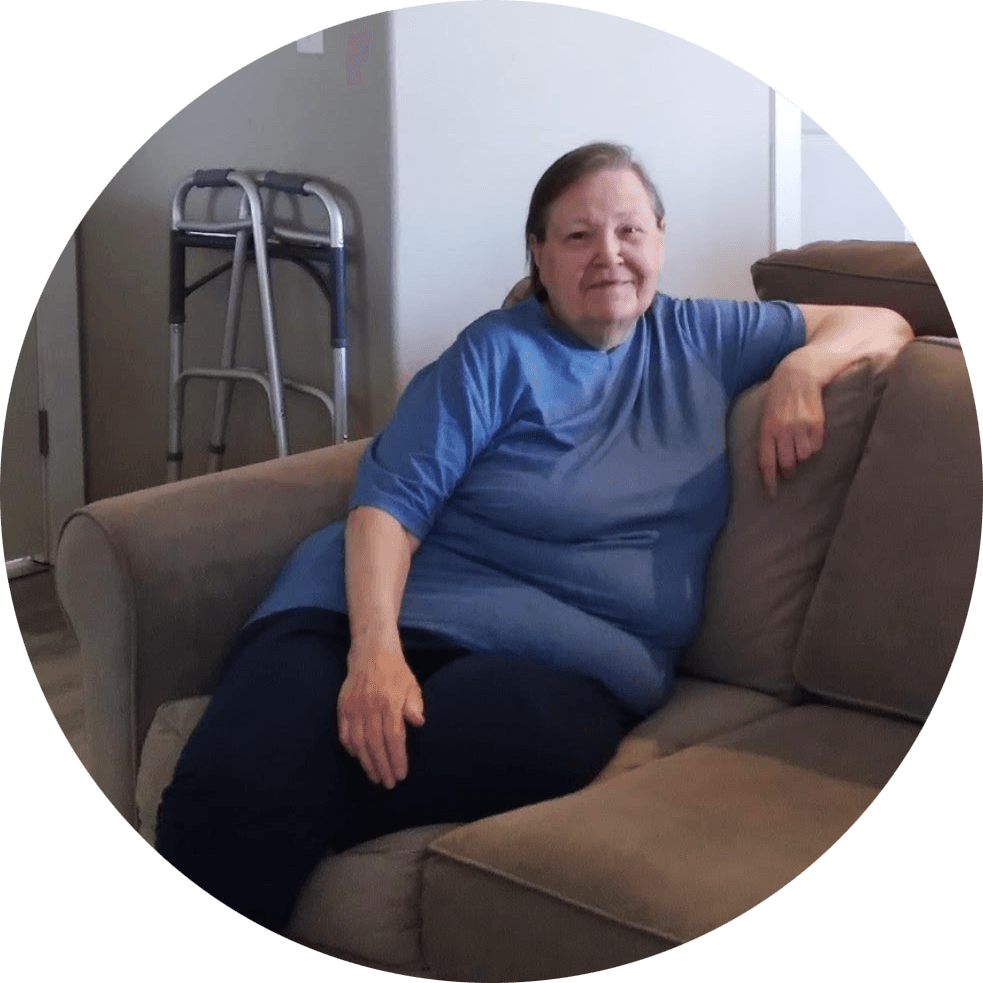Transition & Case Management Services
California Community Transitions (CCT)
Case Management
(CM)
Enhanced Care Management
(ECM)
California Community Transitions
Antioch Office
3501 Lone Tree Way, Suite 2A
Antioch, CA 94509
Serving Contra Costa, Sacramento & Solano County
Sacramento Office
3550 Watt Avenue
Sacramento, CA 95821
Serving Contra Costa, Sacramento & Solano County
Cost & Eligibility
Present — December 2025
This program is available free of charge to adults of any age who qualify. If you have been living in a Medi-Cal paid inpatient facility for at least one day and wish to return to community living, you are eligible.
Starting January 2026
This program is available free of charge to adults of any age who qualify. If you have been living in a Medi-Cal paid inpatient facility for at least 60 days and wish to return to community living, you are eligible.
Case Management
Choice in Aging’s Case Management (CM) program is funded through Contra Costa's Measure X safety net half-cent sales tax. The need for Case Management was identified in Contra Costa's local Master Plan for Aging. Two million dollars of Measure X funding is dedicated each year to fulfilling the implementation of this Master Plan, which includes a broad range of initiatives that support aging in community with dignity and support. This initiative prioritizes equitable access to services, ensuring that at least 70% of referrals reach those with the greatest economic and social needs. By fostering social and economic inclusion, this effort aims to enhance quality of life and create a more supportive, connected community for all.
Antioch Office
3501 Lone Tree Way, Suite 2A
Antioch, CA 94509
Serving Contra Costa County
Services
- Personalized assessments and care planning tailored to individual needs
- Assistance in accessing essential Home and Community-Based Services, such as healthcare, housing, and social support
- Translation and interpretation services to bridge language barriers
- Ongoing follow-ups and continuous support to ensure long-term well-being and stability
Cost & Eligibility
This program is available free of charge to those who qualify, and no insurance is required. Individuals may be eligible for Case Management if they:
- Reside in Contra Costa County
- Are 60 years of age or older
- Are an adult (18 years of age or older) with disabilities
Note:
We also provide Case Management support to the APS division of Contra Costa Aging and Adult Services and only accept those referrals through APS.
Enhanced Care Management
Enhanced Care Management (ECM) gives qualified Contra Costa Heath Plan members extra services from a dedicated ECM provider that contracts with
CalAIM, a Medi-Cal managed care delivery model. The program addresses both clinical and non-clinical needs of eligible individuals through the coordination of services and comprehensive care management. A Lead Care Manager coordinates the member’s health care services, linking them to community and social services. These services are provided at
no cost, as part of the member’s Medi-Cal benefits, and they will not eliminate any of their current benefits.
Antioch Office
3501 Lone Tree Way, Suite 2A
Antioch, CA 94509
Serving Contra Costa County
Services
- Outreach & Engagement: Contact and engage the member in their care
- Comprehensive Assessment & Care Management Planning: Complete a comprehensive assessment with the member and work with them to develop a care plan to manage and guide their care and meet their goals
- Enhanced Coordination of Care: Coordinate care and information across all of the member’s providers and implement the care plan
- Health Promotion: Provide tools and support that will help the member better monitor and manage their health
- Comprehensive Transitional Care: Help the member safely and easily transition in and out of the hospital or other treatment facilities
- Member & Family Supports: Educate the member and their personal support system about their health issues and options to improve treatment adherence
- Coordination of / Referral to Community & Social Support Services:
Connect the member to community and social services
Eligibility
ECM is intended for the highest risk, highest-cost Medi-Cal managed care members with the most complex medical and social needs. The program will help these members coordinate their services across delivery systems to address their needs.
To be eligible for Choice in Aging’s ECM program, members must be enrolled in both a
Medi-Cal managed care plan (CalAIM)
and
Contra Costa Health Plan. Members must also meet the Eligibility Criteria for the following California Department of Health Care Services (DHCS) Population of Focus: “Adults Living in the Community and At Risk for Long-Term Care (LTC) Institutionalization.”
Adults Living in the Community and At Risk for Long-Term Care (LTC) Institutionalization
Overview
Intensive care coordination through ECM can help adults continue to reside in the community who would otherwise have entered an institutional setting for care.
Eligibility Criteria
Adults who:
1) Are living in the community who meet the SNF Level of Care (LOC) criteria: OR who require lower-acuity skilled nursing, such as time-limited and/or intermittent medical and nursing services, support, and/or equipment for prevention, diagnosis, or treatment of acute illness or injury.
AND
2) Are actively experiencing at least one complex social or environmental factor influencing their health (including, but not limited to, needing assistance with activities of daily living (ADLs), communication difficulties, access to food, access to stable housing, living alone, the need for conservatorship or guided decision-making, and poor or inadequate caregiving which may appear as a lack of safety monitoring).
AND
3) Can reside continuously in the community with wraparound supports (i.e., some individuals may not be eligible because they have high acuity needs or conditions that are not suitable for home-based care due to safety or other concerns).


